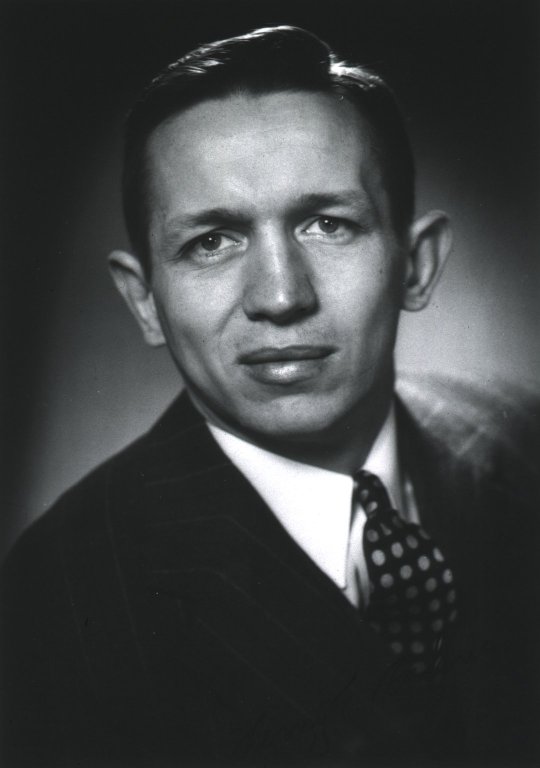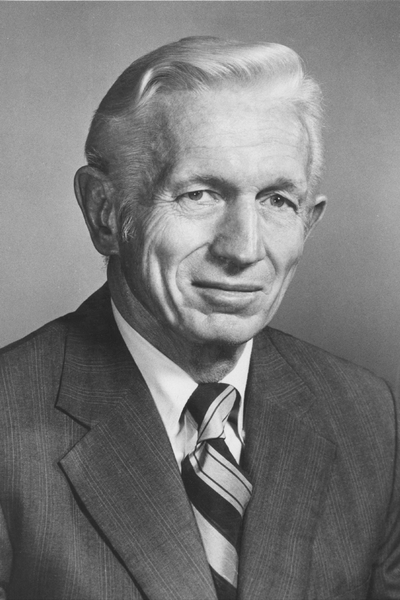<Back to Index>
- Surgeon Henry T. Bahnson, 1920
PAGE SPONSOR


Henry (Hank) T. Bahnson, MD, 82, died peacefully at his home in the Pittsburgh suburb of Fox Chapel early January 10, 2003, following complications of a stroke he had suffered 2 weeks before. His four surviving children and their families were at his side.
Dr. Bahnson was professor of surgery and chairman at the University of Pittsburgh School of Medicine between 1963 and 1987, the longest serving chairman in the school’s 116 year history, and was the first to hold the George V. Foster Chair in Surgery. By actively recruiting top - notch faculty and bringing a focus to research in addition to outstanding clinical care, he is credited with creating one of the leading departments of surgery in the United States. He laid the groundwork for a tradition of excellence and brought prestige to the Department of Surgery that it still enjoys today. While at the University of Pittsburgh, Dr. Bahnson served on the surgical staff of UPMC Presbyterian (formerly Presbyterian - University Hospital), Children’s Hospital of Pittsburgh, and the Pittsburgh VA Healthcare System. After his retirement, he maintained an office at UPMC Presbyterian Hospital and continued to serve on the Pitt faculty until his death.
The consummate academic surgeon, Dr. Bahnson was one of the most respected surgical leaders of his time. Among the many leadership positions he held, he served as president of the Society of University Surgeons (1965), the American College of Surgeons (1983 – 84), the American Surgical Association (1987 – 88), and the American Association for Thoracic Surgery (1976 – 77). He also was a member of the Society of Thoracic Surgeons and the American Society of Transplant Surgeons. He was a longstanding member of the editorial board of the Annals of Surgery.
Dr. Bahnson was an innovator and leader in both cardiothoracic and vascular surgery. In the 1950s, he helped initiate and perfect resection of abdominal aortic aneurysms. In 1968, he performed the first heart transplant in Pennsylvania. In 1981, he recruited Thomas E. Starzl, MD, PhD, to the University of Pittsburgh, a move that helped establish the university as the world’s leading transplant center.
“Hank Bahnson’s influence in medicine goes far beyond surgery,” said Arthur S. Levine, MD, Senior Vice - Chancellor and Dean of the School of Medicine at the University of Pittsburgh. “Bahnson was the quintessential academic physician: master clinician, passionate teacher, profoundly committed to the scientific basis of medicine, and a person of infectious humanism, scholarship and integrity. He was the very soul of our institution, and one of this country’s most important medical leaders. Without Hank, this school never would have achieved its current international stature.”
Professor of Surgery Thomas Starzl, MD, PhD, a friend and colleague, said, “In addition to being the best surgeon I have ever seen, Hank Bahnson was just about the finest and most responsible man I ever met. Wherever he was planted, flowers grew. Pittsburgh was blessed to have him for 40 years.”
Bahnson remained active in medicine and as recently as this past month traveled with his son Blalock to Russia, where he was recognized by the Bakoulev Scientific Center for Cardiovascular Surgery for his contributions to the development of cardiovascular surgery in Russia. Previous awards he received included Pitt’s School of Medicine Golden Apple Award for Teaching (1988), the Michael E. DeBakey International Surgical Society Award (1992), and the René Leriche Award of the International Surgical Society (1997). Dr. Bahnson was twice named Pittsburgh’s Man of the Year in Medicine, in 1968 and in 1983.
Dr. Bahnson’s scientific mind and endless drive led him to numerous other pursuits outside the hospital and academic life. At home, he raised bees, maintained a small apple orchard, made his own wine, and designed and built a rope tow on his property for the enjoyment of his family and friends. He traveled extensively, often accompanied by members of his family and friends, pursuing his passions for alpine skiing, wilderness adventures, mountaineering and sailing. Mountains challenged by Dr. Bahnson included Mt. Everest, Nanga Parbat and Mt. McKinley. Dr. Bahnson often trained for these adventures by running the steps in the 42 floor Cathedral of Learning at the University of Pittsburgh. He enjoyed playing music and held a patent for a modified harmonica called the Bahnson Overblow Harp, an accomplishment he was particularly proud of; “The Wall Street Journal” featured this invention in a front page story in 1999.
Dr. Bahnson was born Nov. 15, 1920, in Winston - Salem, NC, the third of four sons, and was reared in a family that placed a high value on hard work, integrity and education. In 1941 he graduated summa cum laude from Davidson College in Davidson, NC, where he was an all - state offensive lineman, and in 1944 he graduated cum laude from Harvard Medical School. He completed an internship in surgery at Johns Hopkins Hospital from 1944 to 1945, served for 1 year in the U.S. Navy reserves in the Philippines, and returned to Johns Hopkins, where he completed his surgical residency in 1951. His residency training was interrupted for 1 year from 1949 to 1950, when he was awarded a National Research Council Fellowship in Basic Science and pursued research in cardiovascular physiology at the University of Rochester, Rochester, NY. While there, he helped to elucidate the renal humoral influence on blood pressure control.
Johns Hopkins remained Dr. Bahnson’s academic home until 1963, when as a professor of surgery he was recruited to the University of Pittsburgh to become the department of surgery’s second full time chairman. While at Johns Hopkins he was inspired by the work of his mentor Alfred Blalock and made enormous contributions to the infant field of cardiothoracic surgery, most notably in the special discipline of congenital and acquired valvular heart disorders. Although still committed to the University of Pittsburgh, Dr. Bahnson served as president of Johns Hopkins Medical and Surgical Society in 1989.
He survived by his children David Bahnson, MD, of Mendon, VT; A. Blalock Bahnson, PhD, of Pittsburgh (Ross Township); Suzanne Bahnson Kahley, RN, of Pittsburgh (Fox Chapel); and Barbara Bahnson, Esq., MEd, of Pittsburgh (Indiana Township); and six grandchildren: Tee and Jennifer Bahnson of Boulder, CO; Gregg Bahnson of Denver; Adam Bahnson of Pittsburgh; and Annalise and Karissa Becer of Indiana Township. His wife Louise and his eldest son Ted predeceased him.